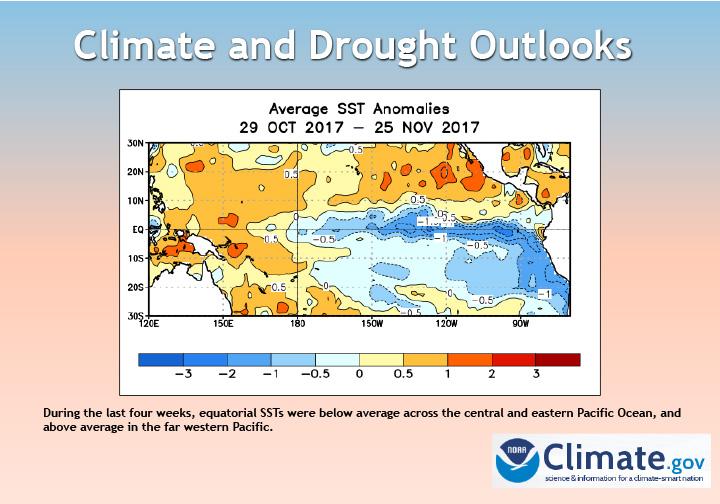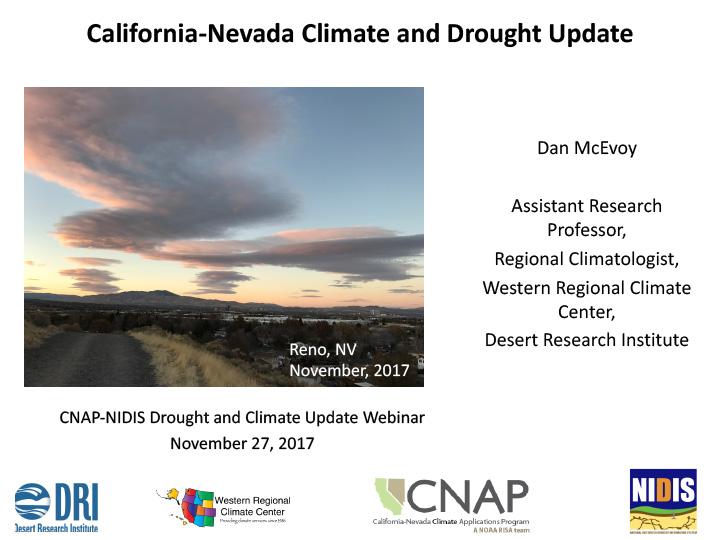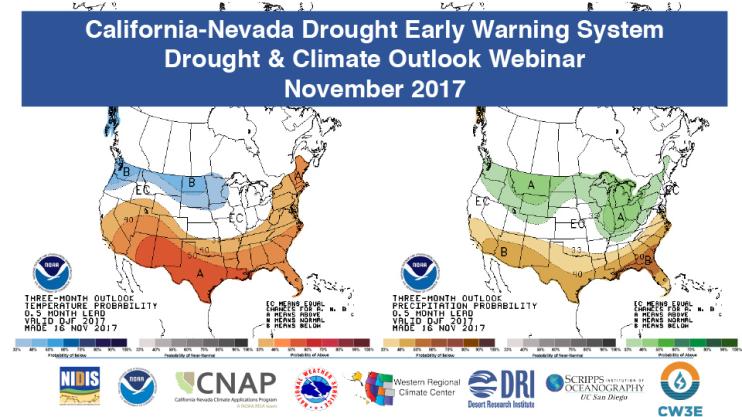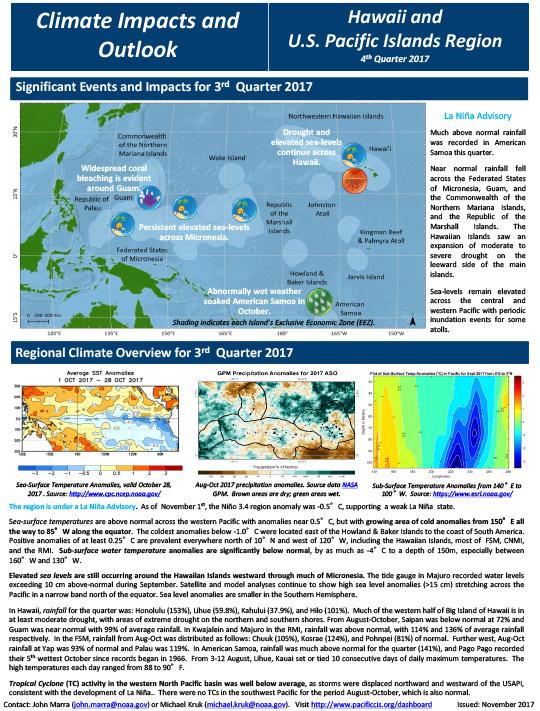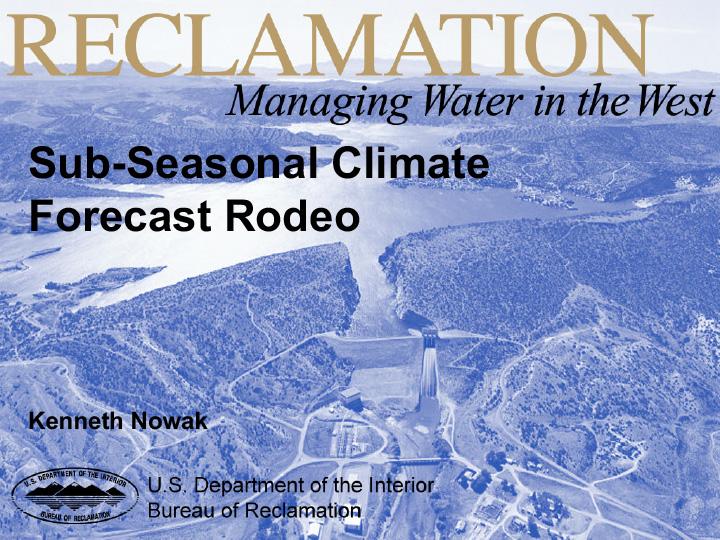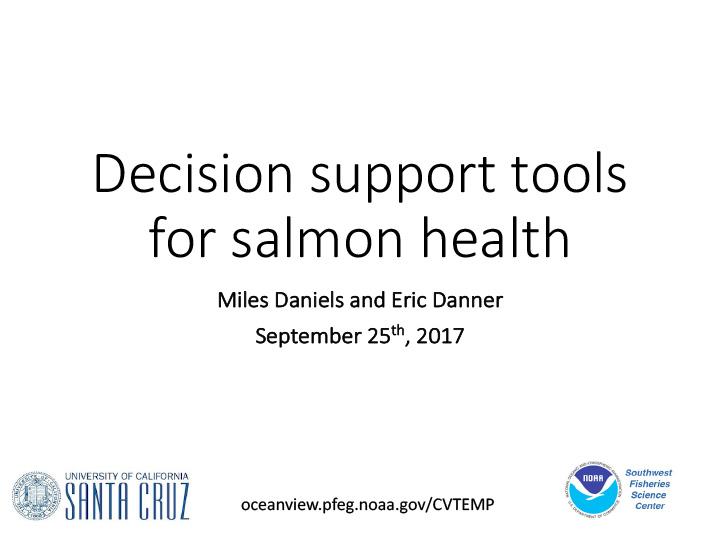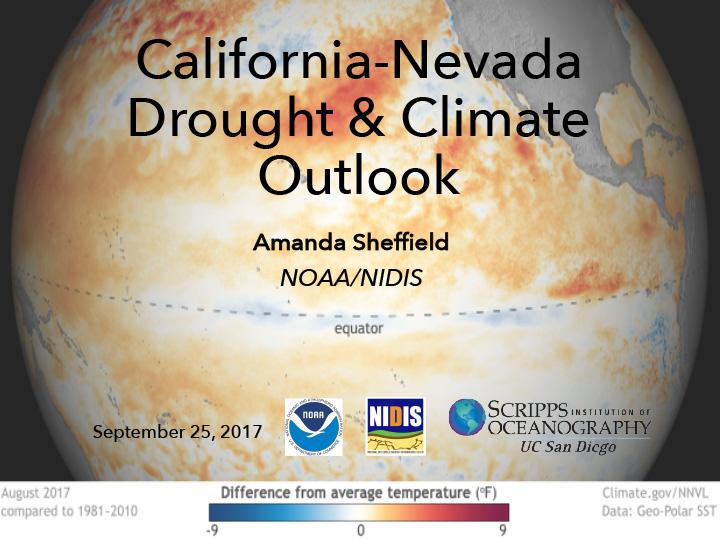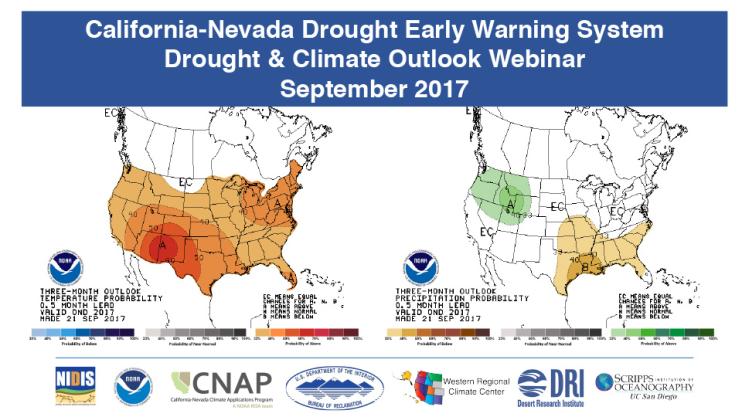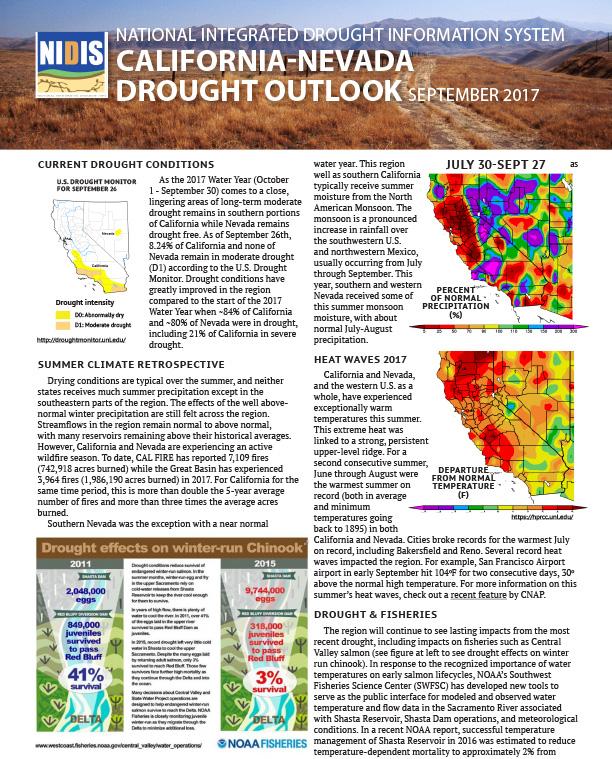Outlook presentation from the November 27, 2017 California-Nevada Drought and Climate Outlook Webinar.
Opening presentation from the November, 2017 California-Nevada Drought and Climate Outlook Webinar.
Quarterly Climate Impacts and Outlook for the Hawaii and the U.S. Pacific Islands Region for August – October 2017. Dated November 2017.
Includes significant events and impacts for Q3 2017; regional climate overview; sectoral impacts, and regional outlook for November 2017 through January 2018.
Forecast Rodeo presentation from the September 25, 2017 California-Nevada Drought and Climate Outlook Webinar.
Fisheries presentation from the September 25, 2017 California-Nevada Drought and Climate Outlook Webinar.
Outlook presentation from the September 25, 2017 California-Nevada Drought and Climate Outlook Webinar.
Drought and climate conditions update presentation from the September 25, 2017 California-Nevada Drought and Climate Outlook Webinar.
Opening presentation from the September 25, 2017 California-Nevada Drought and Climate Outlook Webinar.
Two-page summary of the most recent California-Nevada Drought and Climate Outlook Webinar.


